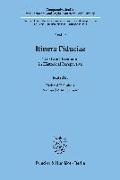- Start
- Practical Ethics
Practical Ethics
Angebote / Angebote:
THE HOME UNIVERSITY LIBRARY OF MODERN KNOWLEDGE 175 PRACTICAL ETHICS PRACTICAL ETHICS VISCOUNT SAMUEL OXFORD UNIVERSITY PRESS LONDON NEW YORK TORONTO CONTENTS CHAP. y PAGE I. PRELIMINARY 7 II. THE TEST OF RIGHT AND WRONG . 19 Iliy SELF AND OTHERS .... 43 IV., Is THERE FREE WILL . . .56 V. DUTY AND INCLINATION ... 77 VI. TRAINING AND HABIT ... 93 VII. Y RELIGIOUS INFLUENCES . . . 101 VIII. REWARDS AND PENALTIES . . 113 IX. j SOCIAL ETHICS . . . .129 X. SOME CURRENT QUESTIONS . - 139 XI. THE NATION AND THE WORLD . .162 XII. MEN AND ANIMALS . . . .186 XIII. y CONSCIOUS EVOLUTION . . . 200 XIV. SUMMARY 217 NOTES AND REFERENCES . . . 239 NOTES ON BOOKS . . . - 251 INDEX 253 The master said If the things be kept simple, we shall seldom lose our way. The Sayings of Confucius CHAPTER I PRELIMINARY ETHICS seeks to answer two questions What is to be regarded as right and as wrong and Why should people do what is right and not do what is wrong In other words, the questions are What is the content of morality and What is the sanction for morality It may be said that both these ques tions are within the province of Religion and that Philosophy need not concern her self with them. But mankind is divided among the adherents of many religions while their teachings often coincide, often also they diverge. If Moslems and Hin dus, Christians and Jews, Protestants and Catholics, have different ideas of the right and the wrong of a given case, what is to be the outcome Are opposite lines 7 PRACTICAL ETHICS of conduct to be held to be right in the same circumstances for different people Or is there need of some further test, of some other authority to give judgement Even among adherents of the same creed, when a conflict arises in some matter of moment, each side will claim a religious sanction for its view. The will of God prevails. No doubt, no doubt Yet, in great contests, each side claims to act In strict accordance with the will of God. Both may, one must be wrong. x Further, as civilization develops, many of the rules of conduct in a country will gradually change, although the same re ligion may be professed throughout. New discoveries set new problems, and new ideas bring about new customs. One age will approve, and its religion will not condemn, slavery, or duelling, or war, while a later age may abhor them. Mor ality evolves. There can be no absolute standard, ordained, unchanging. 1 For the sources of quotations see list of references, p. 241. 8 PRELIMINARY Again, there are some people almost everywhere who do not accept the cur rent theological beliefs, or who, accepting them formally, are not effectively influenced by them in their daily lives. If mor ality rested upon those beliefs alone, these people would have no basis for a moral code or reason for moral conduct. The religions clearly have a great part to play in the realm of ethics. But, for the reasons that have been given, Philo sophy cannot withdraw from that field, in the conviction that it is fully covered, and to the satisfaction of all mankind, by her sister Religion. Nor can Reason surrender the field in favour of Intuition. There are some who hold that there is a natural instinct im planted in human beings, of which con science is the spokesman, and which is an infallible guide to right and wrong. They say of morality, as St. Augustine said of Time, I know what it is when you do not ask me If this theory wexe true, 9 PRACTICAL ETHICS mankind would be unanimous as to what constitutes right conduct but experience shows that this is very far from the case. For one mans intuition contradicts another mans intuition. One person will be a conscientious objector to some law which his neighbour accepts as obviously right. When this happens, what guidance can we get from this principle When private emotion is regarded as the test of truth, controversies arise which are intractable...
Folgt in ca. 10 Arbeitstagen




